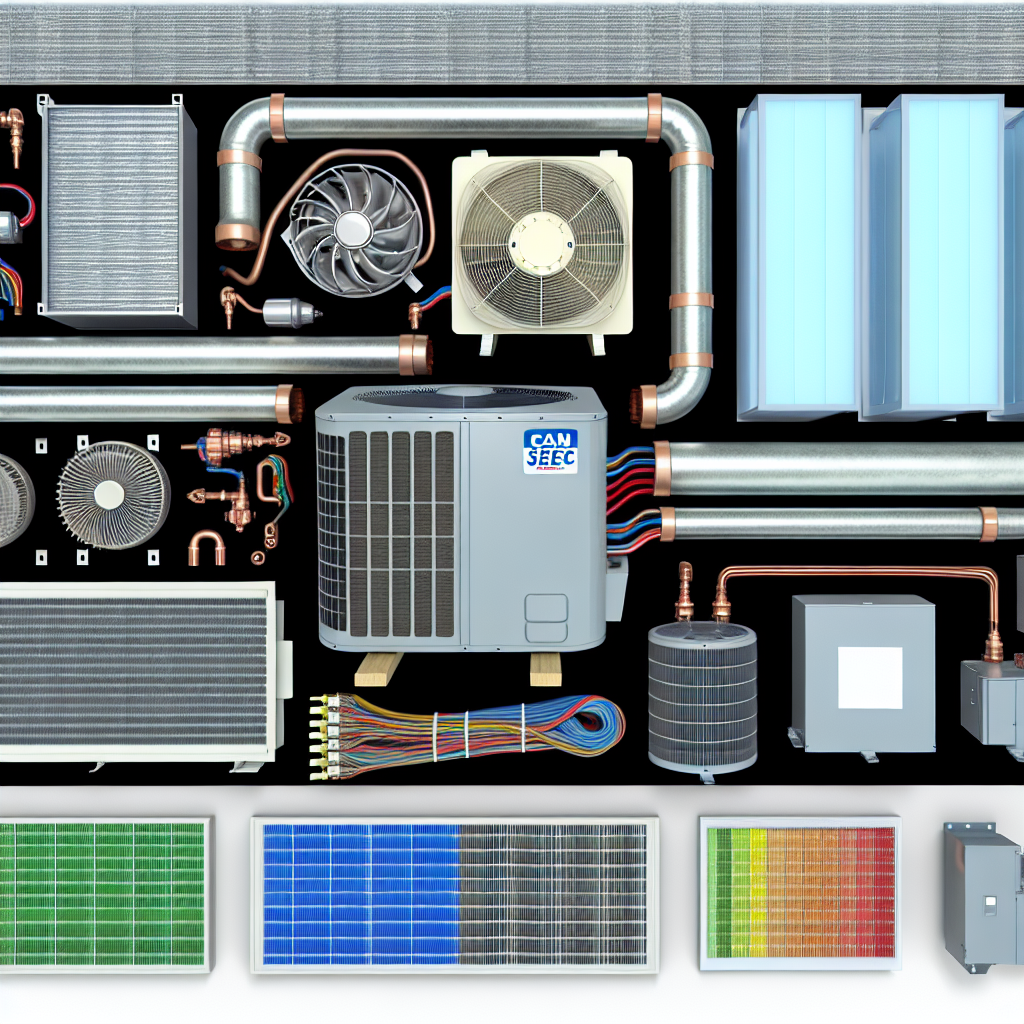Published: Mar 06, 2025

In the world of air conditioning units, one term that you may often come across is SEER rating. SEER stands for Seasonal Energy Efficiency Ratio, and it measures the energy efficiency of an air conditioning unit. Understanding SEER ratings is crucial when it comes to selecting an AC unit for your home, as it directly correlates to how efficiently the unit can cool your space.
SEER rating is a numerical value that represents the efficiency of an air conditioner. The higher the SEER rating, the more energy-efficient the unit is. SEER rating is calculated by dividing the cooling output of an air conditioner during a typical cooling season by the total electric energy input consumed during the same period. In simple terms, SEER rating helps you understand how much cooling power an AC unit can provide relative to the energy it consumes.
Opting for an air conditioner with a higher SEER rating can lead to significant energy savings in the long run. While units with lower SEER ratings may come with a lower upfront cost, they are usually less efficient and can result in higher energy bills over time. Investing in a higher SEER rated unit might require a larger initial investment, but the energy savings achieved can make up for the higher upfront cost over the lifespan of the air conditioner.
Energy efficiency is a critical factor to consider when purchasing an AC unit, as it not only impacts your utility bills but also contributes to reducing your carbon footprint. Energy-efficient air conditioners help you cool your home while consuming less electricity, which is not only beneficial for your wallet but also for the environment. By choosing an AC unit with a high SEER rating, you can ensure that you are making a more sustainable choice for your home.
Several factors influence the SEER rating of an air conditioning unit. The size of the unit, the type of refrigerant it uses, the design of the unit, and how well it is installed and maintained all play a role in determining its SEER rating. Regular maintenance, such as cleaning or replacing filters, checking refrigerant levels, and ensuring proper airflow, can help maintain the efficiency of your air conditioner and, in turn, its SEER rating.
When selecting an air conditioning unit for your home, it is essential to consider your specific needs and budget. While a unit with a higher SEER rating can provide better energy efficiency, it's essential to weigh the upfront cost against the potential long-term savings. Consulting with a professional HVAC technician can help you determine the right size and SEER rating for your home, ensuring optimal performance and efficiency.
In conclusion, understanding SEER ratings and energy efficiency in AC units is vital for making informed decisions when it comes to cooling your home. By opting for an air conditioner with a higher SEER rating, you can enjoy better energy efficiency, lower utility bills, and reduced environmental impact. Remember to consider factors such as maintenance, installation quality, and your specific needs when choosing the right AC unit for your home.
Thank you for taking the time to learn about SEER ratings and energy efficiency in AC units. Make a sustainable choice for your home by selecting an air conditioner with a high SEER rating.
**

Our expert technicians are ready to assist you 24/7!
Contact Us Today!Read our latest articles for helpful information about heating, cooling, and air quality.
When choosing between a furnace and a heat pump for your home, consider factors like climate, energy costs, and budget...
Read MoreInvesting in energy-efficient HVAC systems like variable-speed air conditioners, heat pumps, and smart thermostats can...
Read MoreRegular HVAC maintenance is essential for improving energy efficiency, extending the lifespan of your system, enhancing...
Read MoreImplement these 10 tips to enhance the air quality in your home, promoting a healthier living environment for you and y...
Read More